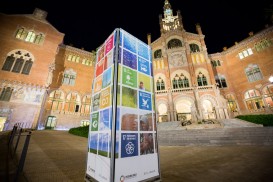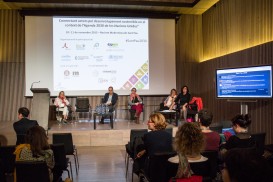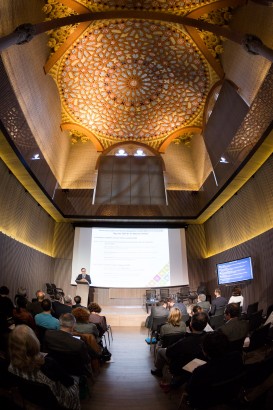Joint action in local and regional contexts will “make or break” the UN’s 2030 Agenda
More than 150 people participated in the two-day meeting in Barcelona on the 10th and 11th of November, which brought together multilateral agencies, think tanks, local and global NGOs, business executives, students, researchers, government officials and technical staff in interactive dialogues and workshops to explore the obstacles and opportunities to meet the SDGs in local and regional contexts.
The conference highlighted the universal character of the new global agenda for sustainable development, as well as the importance of shared responsibility and joint action in local and regional contexts. Another key message that emerged in numerous dialogues and presentations was the importance of thinking and acting in a holistic manner in order to increase the impact of measures adopted and avoid distorting the agenda’s cross-cutting issues, which are the foundation for development. Participants and expert panelists also agreed that work to advance the SDGs will require paradigm shifts on the part of all actors.
The role of education and research in the new agenda
GUNi together with the Catalan Association of Public Universities (ACUP), were in charge of the parallel session “The role of Higher Education in the 2030 Agenda. Are universities prepared?” At this workshop, participants discussed on how Higher Education Institutions are involved on the Post-2015 Agenda and the current situation of the Catalan universities under this context. During the session, the invited speaker Professor Andrea Costafreda (Blanquerna-URL) pointed out the normative and soft character of the SDG’s and stressed that “the real change will happen when universities begin to work in a cross-cutting manner”.
This is a view also shared by Dídac Ferrer, Head of the Sustainability and Equal Opportunities Office at the Polytechnic University of Catalonia. In his speech, he asserted that universities and research institutes should abandon “hyper-disciplinary approaches” in favor of “cross-cutting projects”, while also working to define new indicators and methodologies and promoting cooperation in the local territory as a matter of social responsibility. Likewise, many workshop speakers and panelists remarked on the importance of education and knowledge exchange in support of all SDGs.
Sant Pau as a meeting point for the 2030 Agenda
Josep Maria Vilalta, Executive Director of GUNi and ACUP together with other office and program directors of Sant Pau resident institutions closed the event with brief messages highlighting their work in relation to the 2030 Agenda. Thereafter, Eduard Vallory, Chairman of the Center for the UNESCO of Catalonia, closed the conference by reiterating the importance of joint efforts in support of the 2030, Agenda, and in particular, the need to promote collaborative action through education.


